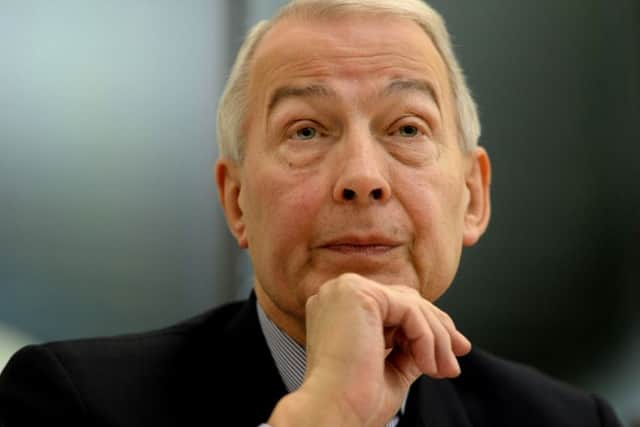Taxpayers to foot the collapse of Carillion to the tune of £148m


The National Audit Office has today said it could take several years to establish the final cost of the liquidation, while the £2.6 billion pension liabilities will have to be compensated through the Pension Protection Fund.
A report into the Government’s handling of the crisis said Carillion’s non-government creditors are unlikely to recover much of their investment.
Advertisement
Hide AdAdvertisement
Hide AdCarillion had been signed on work on a number of high-profile Yorkshire construction projects - including HS2 - as well a raised question marks over the provision of catering and cleaning to schools.


The scale of a profit warning issued by Carillion last July came as a “surprise” to the Government, said the NAO.
The Cabinet Office began contingency planning for the possible failure of Carillion shortly after the profit warning, accelerated the process in October, and it was complete by January 15 when Carillion collapsed, said the report.
Carillion’s 2016 accounts were published in March 2017 and showed the company as profitable and solvent.
Advertisement
Hide AdAdvertisement
Hide AdThe Cabinet Office raised Carillion’s risk rating from amber to red in response to the July 2017 profit warning, but it did not increase it to the highest risk as it did not want to risk precipitating Carillion’s financial collapse, said the NAO.


“In the months following Carillion’s first profit warning, the company announced £1.9 billion of new Government work, including £1.3 billion of HS2 contracts.
“Many of these contracts had been agreed before the profit warning, although in some cases contracts were signed, or variations agreed, afterwards,” said the report.
Carillion asked the Government for £223 million in January to help it through to April and additional support with its financial restructuring, said the report, adding: “Rather than provide this, the Cabinet Office decided it was better that Carillion enter into a trading liquidation, because it had serious concerns about Carillion’s business plans, the legal implications, potential open-ended funding commitments, the precedent it would set, and the concern that Carillion would return with further requests.”
Advertisement
Hide AdAdvertisement
Hide AdAround two-thirds of Carillion workers - 11,638 - have found new jobs but more than 2,300 have been made redundant and 3,000 are still employed on contracts.
A Cabinet Office spokesman said: “Throughout this process, the Government has been clear that its priority is to ensure that public services continue to run smoothly and safely.”
However critics were quick to line-up to criticise the Government’s judgement and oversight of the crisis.
Frank Field, chairman of the Work and Pensions Committee, said: “This invaluable report adds new weight to what we found: Carillion hoodwinked the Government as they did many others who were so naive as to trust their published accounts.
Advertisement
Hide AdAdvertisement
Hide Ad“But the NAO’s explanations of why common or garden UK public sector construction contracts failed betray extraordinarily negligent planning.”
And Jon Trickett, Hemsworth MP and shadow minister for the cabinet office, said: “The Tories were more concerned about the commercial interests of big business than protecting taxpayers’ money or public services.”